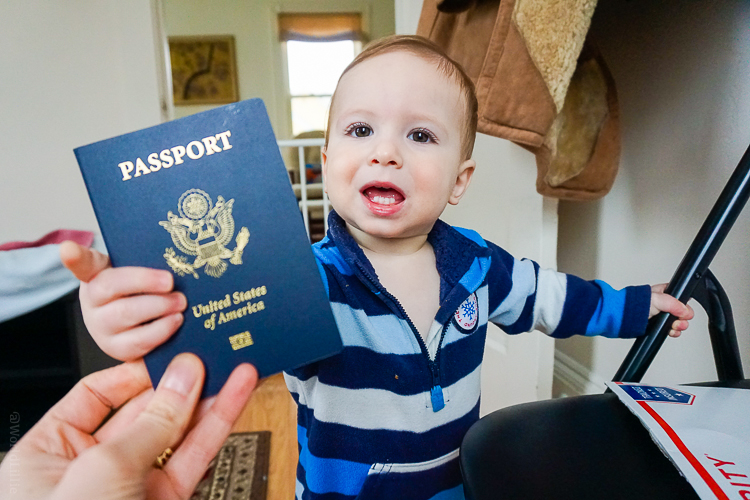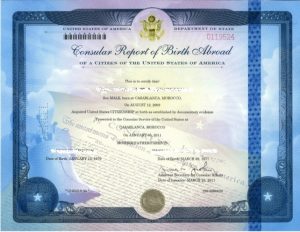

A Consular Report of Birth Abroad (CRBA) is an official document certifying acquisition of American citizenship for a child born outside of the United States. Also known as Form FS-240, the document provides similar evidence of citizenship as a United States passport, a Certificate of Naturalization, or a Certificate of Citizenship. A Consular Report of Birth Abroad is only issued to a child who acquired U.S. citizenship at birth outside the United States and who is generally under the age of 18 at the time of the application.
Table of ContentsParents of a child born abroad to a U.S. citizen (or citizens) should apply for a CRBA and/or a U.S. passport for the child as soon as possible.
Start by collecting evidence of the child’s birth. You likely also need to gather documents that prove the parent(s)’ U.S. citizenship, marriage (if applicable), and previous physical presence in the United States. (Learn more in Acquisition of Citizenship for Children.)
If the parents are unmarried and the father is a citizen and the mother a non-citizen, the consular officer usually requires that the father sign an affidavit saying that he is the child’s biological father and that he will support the child financially. Additional evidence such as divorce decrees from previous marriages or blood tests may also be required.
A parent or legal guardian should report their child's birth as soon as possible at the nearest U.S. embassy or consulate so that a Consular Report of Birth Abroad can be issued as an official record of the child’s claim to U.S. citizenship.
Apply for the Consular Report of Birth Abroad (Form DS-2029) through the nearest U.S. embassy or consulate in the country where your child was born. Procedures for each embassy can vary. So check your embassy’s webpage for more specific instructions.
Once the consular officer approves the application, the Consular Report of Birth Abroad (Form FS-240) can be issued. Typically, the child’s parents may choose to apply for a U.S. passport for the child at the same time that they apply for a CRBA.
The U.S. embassy or consulate will provide one original copy of an eligible child’s Consular Report of Birth Abroad. But you may replace, amend or request multiple copies of a CRBA at any time.
Failure to promptly document a child who meets the statutory requirements for acquiring U.S. citizenship at birth may cause problems for the parents and the child when attempting to establish the child’s U.S. citizenship and eligibility for the rights and benefits of U.S. citizenship, including entry into the United States. By law, U.S. citizens, including dual nationals, must use a U.S. passport to enter and leave the United States.

Children who acquired U.S. citizenship or U.S. nationality at birth in certain territories of the United States during relevant time periods are not eligible for a Consular Report of Birth Abroad. They are not eligible because such persons are not considered to have been born abroad. They are already American citizens or nationals.
Individuals born in Puerto Rico, U.S. Virgin Islands, American Samoa, Guam, Swains Island, The Panama Canal Zone (before October 1, 1979), The Commonwealth of the Northern Mariana Islands (after January 8, 1978, 8PM EST), and The Philippines (before July 4, 1946) may establish acquisition of U.S. citizenship or non-citizen nationality, based upon the applicable agreement or statute, by producing their birth certificate issued from the local Vital Records Office along with any other evidence required to establish acquisition.
For persons born in American Samoa and Swains Island, the easiest way to obtain American citizenship is to establish residence in the United States and file Form N-400, Application for Naturalization.